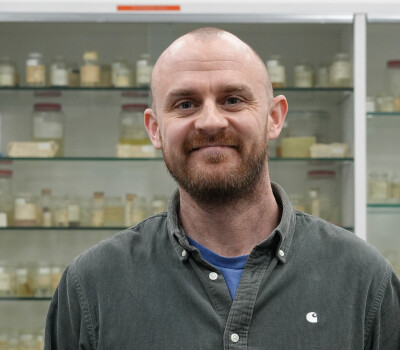Men have a role to play in ending FGM, but they don't play it

Since Female Genital Mutilation (FGM) was taken up as a health issue by the World Health Organization (WHO) in the 1970s and 1980s, most interventions aiming to stop the practice have focused on working with women. Although commonly mentioned reasons for practicing were said to be men’s pleasure and control of female sexuality, until recently limited research has been done on men’s views of and knowledge about the practice. In collaboration with GAMS Belgique, the HIMILO Foundation in the Netherlands and FORWARD UK, the Institute of Tropical Medicine in Antwerp did a mixed methods study exploring men’s involvement in FGM in Belgium, the Netherlands and the United Kingdom. The report shows that men are hardly involved in FGM, but that they could play a role in putting an end to the practice.
The aim of the “Men Speak Out” project was to engage men of Sub-Saharan African background in Belgium, the Netherlands and the United Kingdom in the process of ending FGM and, on a larger scale, to end violence against women and promote gender equality through a human rights’ approach.
On the 13th of March, anthropologist and main author Sarah O’Neill of the Institute of Tropical Medicine will present the results of this exploratory qualitative and quantitative study at the WHO in Geneva. She recently also presented the results at the UK’s House of Commons and the Belgian Parliament.
“Men and women reported that it was extremely difficult to speak about the practice across gender and across generations. Some husbands had never spoken to their wives about the practice,” said Sarah O’Neill about the interviews in Belgium, the Netherlands and the United Kingdom. “This is in line with the results of the UNICEF report 2013, which showed that in 16 African countries communication regarding FGM between women and men is poor.”
Research across Sub-Saharan Africa shows that traditionally men are hardly involved in female genital mutilation. The Men Speak Out research confirms that this is the case for African migrants living in Europe too – all the practical arrangements for the cutting are made by women and men know very little about at what age girls are cut, who performs the cutting, and what exactly is cut, etc. However, female and male respondents agreed that men have an important role to play because by not speaking out against it, men consent to having their daughters cut.
The research strongly suggests that the information new migrants and asylum seekers receive on FGM needs to be substantially improved. “In order to save girls from FGM, women and men need to receive adequate information on FGM soon after arrival in Europe. Some of the respondents suggested that having access to adequate information would make it easier to abandon FGM and that many of those who supported the practice simply ‘did not know’,” said O’Neill. Involving different kinds of leaders, such a religious leaders, opinion leaders and community leaders in the abandonment movement was considered to be beneficial.
The quantitative results of the research showed that new male migrants were more likely to think the practice should continue. Those who arrived within the last five years were 2.5 times more likely to think that the practice should continue than men who arrived more than five years ago. In Belgium almost 25% of Guinean migrants believed that the practice should continue. As for Somali migrants living in Belgium, 16% thought that the practice should continue in contrast to Somali migrants living in the UK (7,3%) and in the Netherlands (5.7%).
This report was produced with the financial support of the Daphne Programme of the European Union.
Links
- The report: “Men have a role to play but they don’t play it”: A mixed methods study exploring men’s involvement in Female Genital Mutilation in Belgium, the Netherlands and the United Kingdom.
Authors: Sarah O’Neill, Dominique Dubourg, Stephanie Florquin, Marthine Bos, Solomon Zewolde and Fabienne Richard - Men Speak Out
Spread the word! Share this story on









